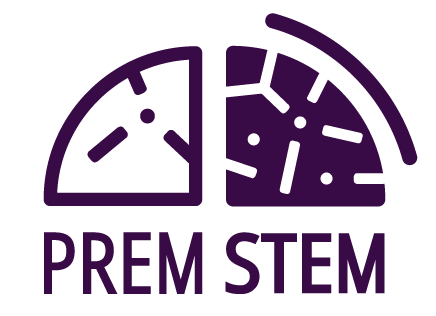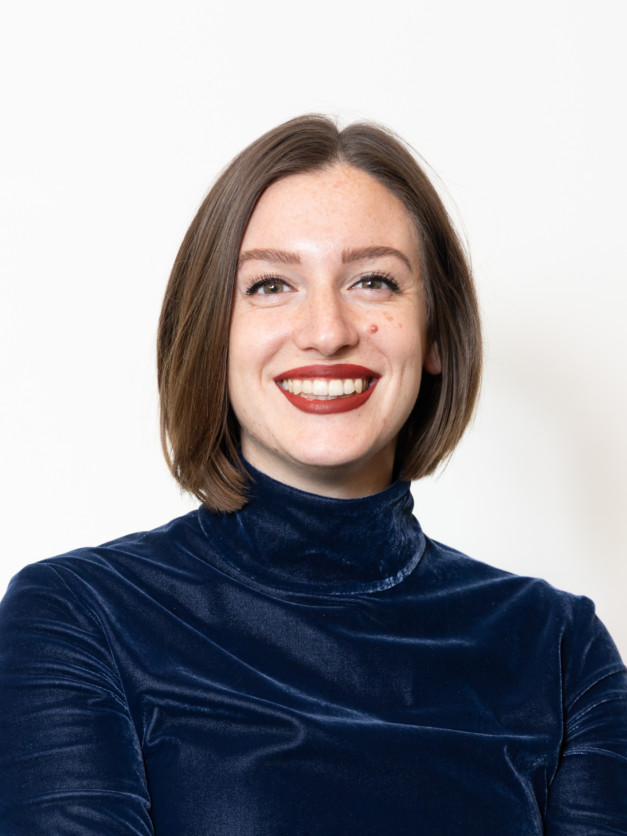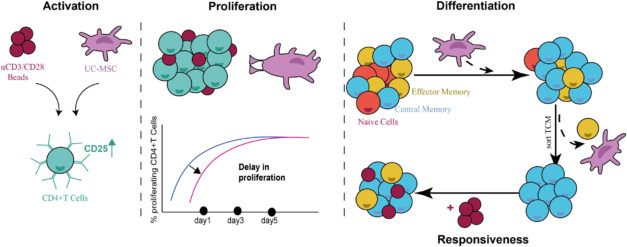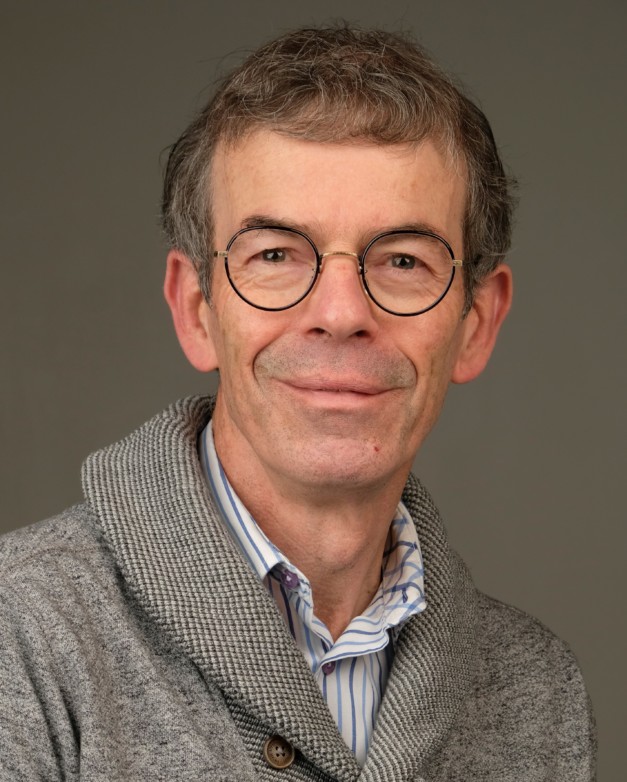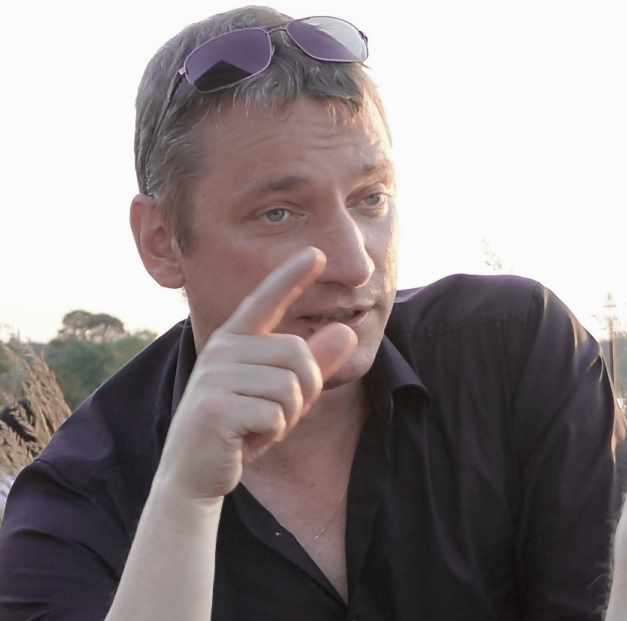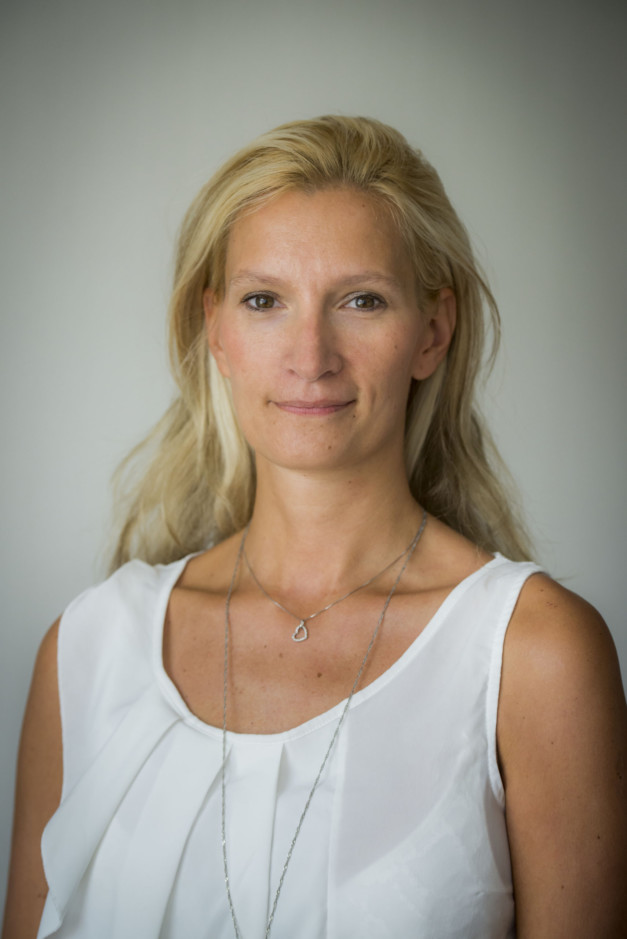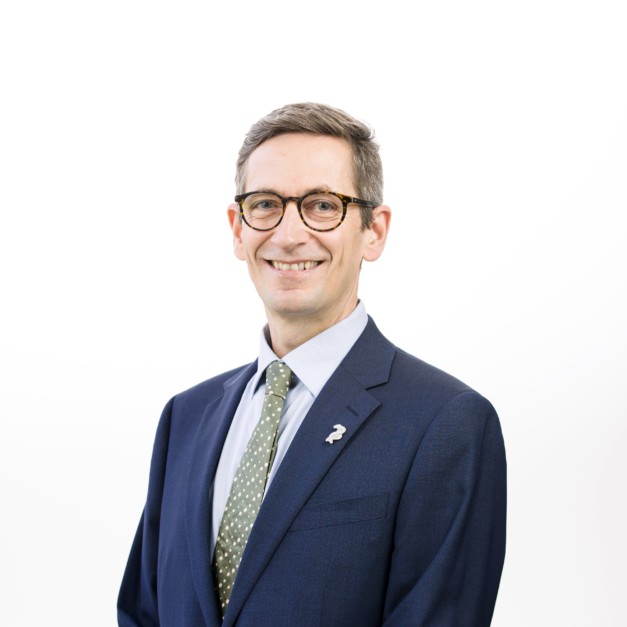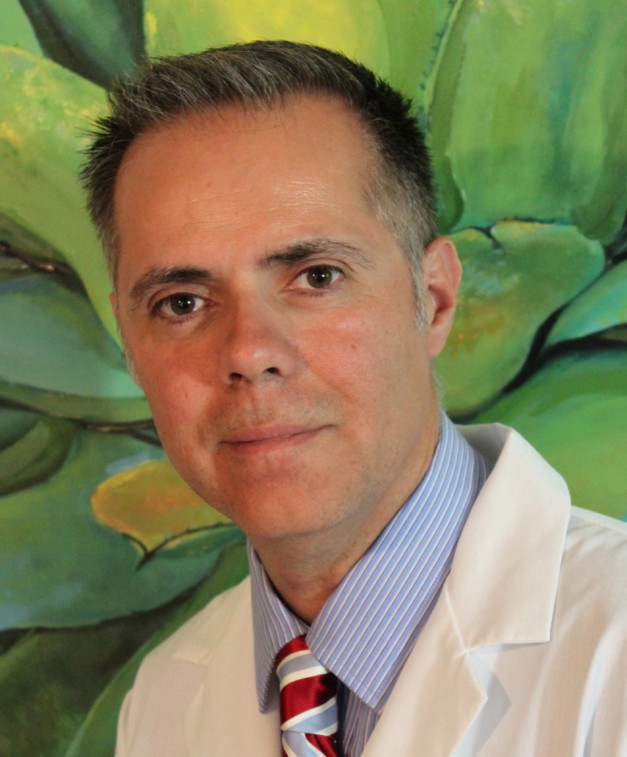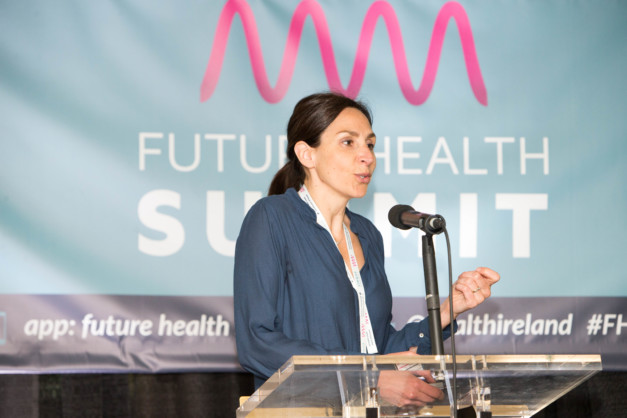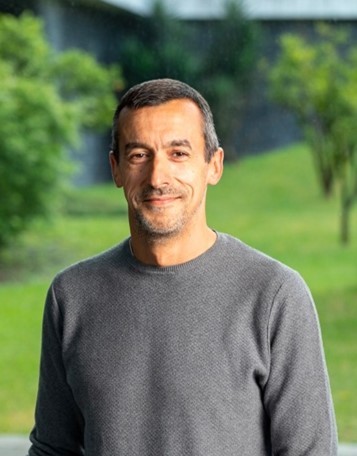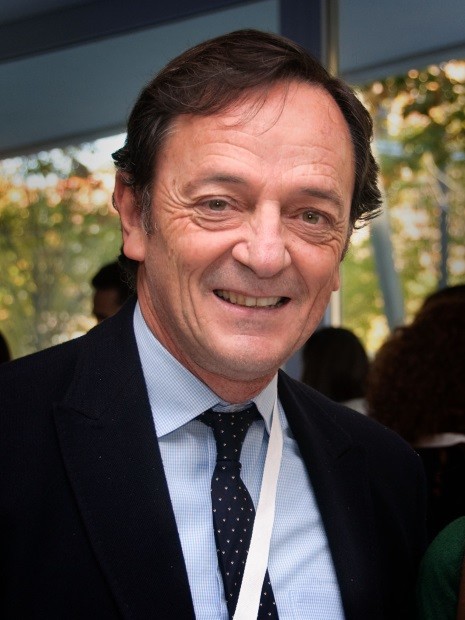Sara De Palma
Sara De Palma Sara De PalmaPhD candidateDepartment for Developmental Origins of Disease, University Medical Center Utrecht Brain Center and Wilhelmina Children’s Hospital, Utrecht University, Utrecht (The Netherlands) Session: From pre-clinical work to an approved therapy – Wednesday 14 May (10.30am-12pm) Sara De Palma studied at the Polytechnic University of Turin, completing both a bachelor’s and master’s degree in biomedical engineering. During the final year of the master’s program, she moved to Utrecht for an internship at the Laboratory of Neuroimmunology and Developmental Origins of Disease under the supervision of Caroline de Theije. This experience led to pursuing a Marie Curie PhD in regenerative medicine at University Medical Center Utrecht in the group of Cora Nijboer, focusing on optimising mesenchymal stem cell therapy for neonates with hypoxic-ischemic brain injury. In 2023 Sara received a PhD Research Grant from the Cerebral Palsy Alliance which enabled a research stay at the University of…
Umbilical cord-mesenchymal stem cells induce a memory phenotype in CD4+ T cells
Ezgi Sengun, Tim G. A. M. Wolfs, Valéry L. E. van Bruggen, Bram van Cranenbroek, Elles R. Simonetti, Daan Ophelders, Marien I. de Jonge, Irma Joosten, Renate G. van der Molen
Gert van Steenbrugge
Gert van Steenbrugge Gert van SteenbruggePatient/parent representative (volunteer)Care4Neo (The Netherlands) Session: Learnings from co-creation: involving external stakeholders in research – Thursday 15 May (8.30-10am) Gert van Steenbrugge is father of two preterm children, born respectively at 34 and 26 weeks of pregnancy. He is former director of the Dutch parent organisation VOC (currently known as Care4Neo) and is presently member of the scientific committee of Care4Neo. Gert has been involved in the European Foundation for the Care of Newborn Infants (EFCNI) since the first parents’ meeting in 2008. He was member of the Parent Advisory Board and was involved in the development of EFCNI’s Standards of Care. By education Gert is biochemist and worked for many years in biomedical research. Having this background his special interests are medical and care-associated research in neonatology. Together with parents and professionals he was founder of the ‘Neokeurmerk’, a quality mark for the neonatology…
Pierre Gressens
Pierre Gressens Pierre GressensDirector, INSERM–Université Paris Cité laboratory U1141 (France) and PREMSTEM coordinator Session: Opening address – Tuesday 13 May (1.45-2pm) Pierre Gressens received his MD (UCL, Brussels, Belgium) in 1989 and his PhD at UCL in 1995. He specialised in Child Neurology and carried out his post-doctoral research training at NIH (Bethesda, USA). He has been working at Robert Debré Hospital, Paris both as researcher and child neurologist, since 1995. Currently, Pierre is the Director of the INSERM–Université Paris Cité laboratory (U1141). Over the last 30 years, the Gressens laboratory has been involved with the basic and applied aspects of research in the area of neurodevelopmental disorders, with a focus on neuroinflammation. Pierre has published more than 330 original papers.
Lívia Nagy Bonnard
Lívia Nagy Bonnard Lívia Nagy Bonnard Patient Expert, EUPATI FellowRight(s) Beside You Association – Melletted a helyem Egyesület (Hungary) Session: Opening address – Tuesday 13 May (1.45-2pm) Lívia Nagy Bonnard is the Founder and Vice-President of the Melletted a Helyem Egyesület association for preterm babies in Hungary. She is the mother of four, including a preemie boy born at 27 weeks’ gestation who is now a young adult living with multiple disabilities. Lívia is a patient expert – EUPATI Fellow who has participated on several national and international research projects. She is a member of the Parent, Patient and Public Advisory Board (PPPAB) for EFCNI’s European Standards of Care for Newborn Health and a NIDCAP NFI Family Council member. Lívia coordinates FINE training in Hungary and part of Faculty. She received an EFCNI award for organising the adaptation of FINE for online training in 2022. Lívia is a trained nurse…
James Boardman
James Boardman Professor James BoardmanProfessor of Neonatal MedicineUniversity of Edinburgh (UK) Session: Imaging modalities – Thursday 15 May (12.30-2pm) James Boardman is Professor of Neonatal Medicine and Director of the Jennifer Brown Research Laboratory at the University of Edinburgh. He researches new ways of reducing brain injury and restoring learning potential after adverse early life events. His significant contributions include characterising atypical brain development after preterm birth using quantitative MRI, elucidating how the perinatal stress environment and systemic inflammation interact with brain development, and mapping the effect of socioeconomic gradients on brain growth. His current work seeks to understand which perinatal exposures confer risk and resilience for neurodevelopmental and educational outcomes in children born preterm and to identify the biological axes that embed those exposures in child development. James is a Fellow of the Academy of Medical Sciences, a past president of the Neonatal Society, holds a UKRI MRC programme…
Richard Schäfer
Richard Schäfer Professor Richard SchäferMedical Director Transfusion Medicine, Deputy Director Institute for Transfusion Medicine and Gene Therapy, Head Freiburg iPS CoreMedical Center, University of Freiburg (Germany) Session: In vitro studies of stem cell activities – Thursday 15 May (10.30am-12pm) Richard Schäfer is the Medical Director Transfusion Medicine at the Institute of Transfusion Medicine and Gene Therapy at Freiburg University, where he is also leading the iPSC core facility. He was clinically trained in internal medicine and transfusion medicine. His research addresses both fundamental and translational questions. He has been working extensively in the mesenchymal stromal cell and induced pluripotent stem cell fields at Harvard, Stanford, Tübingen, Frankfurt and Freiburg Universities.
Sandrine Thuret
Sandrine Thuret Professor Sandrine ThuretProfessor of NeuroscienceHead Neurogenesis and Mental Health Laboratory; co-Head Basic and Clinical Neuroscience Department; co-Director Wellcome KCL PhD Programme in Mental Health Research for Health Professionals; Director MRC DTP in Biomedical Sciences; Co-Director King’s Institute for Human and Synthetic Minds, King’s College London (UK) Session: In vitro studies of stem cell activities – Thursday 15 May (10.30am-12pm) Sandrine Thuret is Head of the Neurogenesis and Mental Health Laboratory and co-Head of the Basic & Clinical Neuroscience Department at King’s College London, UK. She has a background in bioengineering, molecular, cellular, behavioural and ageing biology. She graduated from the University of Heidelberg, Germany with a PhD in Neuroscience and did her postdoctoral research at the Salk Institute with Prof. F.H. Gage, CA, USA, where she investigated the role of stem cells in the mammalian central nervous system. Sandrine’s lab is investigating environmental and molecular regulatory mechanisms controlling…
António Salgado
António Salgado Dr António SalgadoCoordinating Investigator and Vice-Dean for ResearchLife and Health Sciences Research Institute (ICVS), School of Medicine, University of Minho (Portugal) Session: Alternatives and adjuncts to stem cells – Wednesday 14 May (3.30-5pm) António Salgado is a biologist with a PhD in Tissue Engineering and Hybrid Materials (2005), and a Habilitation (DSc) in Health Sciences, from the University of Minho. Currently he is a Coordinating Investigator at the Life and Health Sciences Research Institute (ICVS) and Vice-Dean for Research at the School of Medicine – University of Minho. His research interests are focused on the development of innovative therapies for CNS repair, namely on Spinal Cord Injury and Parkinson’s Disease, using stem cells secretome. His main areas of research are: 1) Development of ECM like hydrogels for the transplantation of Mesenchymal Stem Cells into the injured CNS; 2) Role of the secretome of MSCs in neuroprotection and repair,…
Máximo Vento
Dr Máximo Vento Dr Máximo VentoEmeritus ResearcherInstituto de Investigación Sanitaria La Fe (IISLAFE), Valencia (Spain) Session: From pre-clinical work to an approved therapy – Wednesday 14 May (10.30am-12pm) • MD, PhD• Professor of Pediatrics• Division of Neonatology, Univ and Polytech Hospital La Fe, Valencia• 475 publications; h-index 73• Oxygen metabolism and redox regulation in neonatology: experimental model, clinical and biomarker approach (mass spectrometry)
